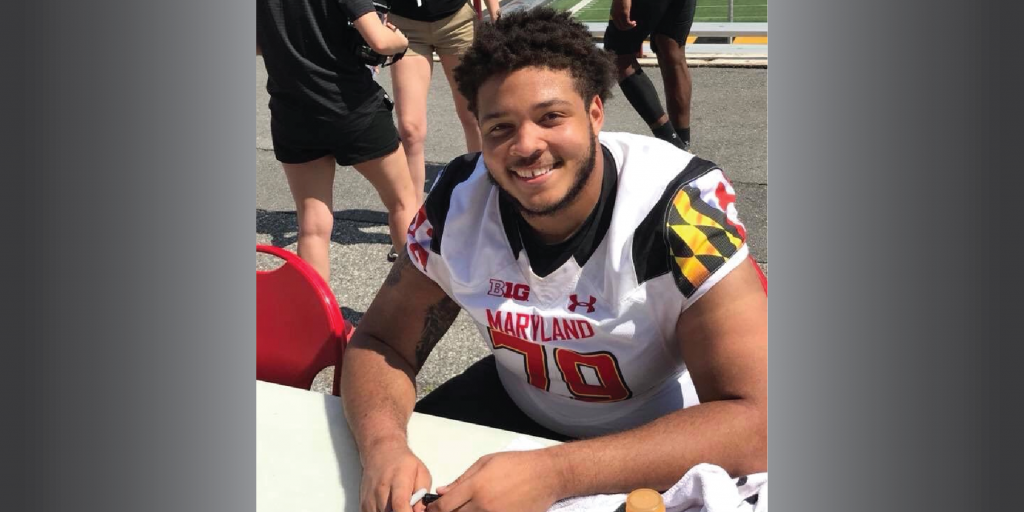A bill that would require athletic programs at public higher education institutions to implement health guidelines for student-athletes advanced further through both chambers of the state legislature last week. The bill would also open the door for athletes to make endorsement deals.
The bill, named the Jordan McNair Safe and Fair Play Act, was created in honor of former University of Maryland football player Jordan McNair, who died after suffering a heatstroke during a team workout in 2018.
The legislation received its second of three readings in the House of Delegates on Friday, and lawmakers voted to move the bill forward.
The House also adopted several amendments that significantly narrowed the scope of the bill.
Scrapped provisions included one that would have required public higher education institutions to pay for health insurance for student-athletes who are Pell Grant recipients. Another would have required universities to cover the health care costs of student-athletes who suffer an injury or illness as a result of their participation in an athletic program.
The Senate bill is a step behind in the legislative process last week and had not received a vote on amendments.
Sen. Justin Ready (R-Carroll County), the lead sponsor of the Senate version of the bill, said the amendments emerged from discussions between lawmakers and representatives from the University System of Maryland and the University of Maryland.
Ready said the bill’s goal is to ensure the well-rounded welfare of student-athletes.
[USM presidents address lack of trust in COVID vaccine due to history of medical racism]
“We want to do more to be sure that Maryland is ensuring student-athletes’ safety, but also we want to be on the cutting edge of name, image and likeness, because it’s a great, brilliant economic empowerment for student athletes,” he said.
Left unchanged by the amendments is a mandate in both the House and Senate bills, which requires athletic programs to implement “guidelines to prevent, assess and treat serious sports-related conditions.” These conditions include brain injury, heat illness and rhabdomyolysis, a condition caused by damage to muscle tissue that can result in permanent disability and even death.
Programs would also need to monitor student-athletes who have conditions such as sickle cell trait and asthma, which can be life-threatening.
Thirty-four National Collegiate Athletic Association football players died from exertion-related causes from 1998 to 2018, according to a database kept by Scott Anderson, the head athletic trainer at the University of Oklahoma.
In addition to the health provisions, the legislation would also allow student-athletes to receive money for the use of their names, images or likenesses. The change would allow student-athletes to pursue endorsement deals or appear in commercials, which have long been prohibited under NCAA rules.
[UMD SGA submits state bill that would add student oversight to fee allocation]
This provision wouldn’t go into effect until July 2023 in the amended House bill, but the health requirements would take effect much sooner, in July of this year.
“I’ve been very frustrated with the NCAA dragging its feet on what to me seems like a common sense thing that they could be pushing — to give student-athletes the ability to profit off of name, image and likeness,” Ready said.
Lawmakers worked with USM this year to address those concerns, Ready said, adding that he is “cautiously optimistic” that the new bill will pass.
A USM representative attended Thursday’s Senate committee hearing to oppose the bill but said that this was mostly because the Senate version hadn’t been amended.
“The initial reaction I’m getting [from athletic departments] is that the bill is trending toward a place where all concerns have been addressed,” said Robert Page, associate vice chancellor of financial affairs at the University System of Maryland.
After Jordan McNair’s death, his parents, Marty McNair and Tonya Wilson, started a foundation with the aim of promoting, educating and advocating on behalf of parents and student-athletes about heat-related illness. Marty McNair and the foundation have worked with lawmakers for over a year on enacting legislative changes.
McNair told The Diamondback that he is single-mindedly focused on health and safety. That the amendments to the bill placed health and safety above any other issue, he said, is “fantastic.”
“Prevention is the key here,” McNair said. “If you have the right preventative measures in place, you won’t have tragedy.”
This story has been updated.



